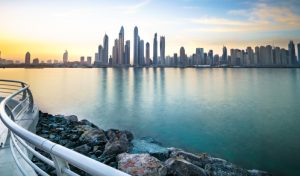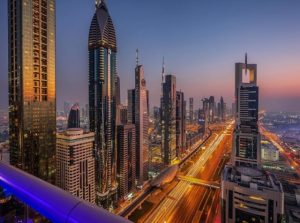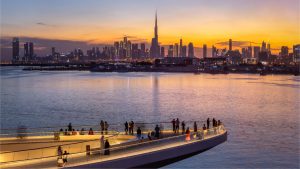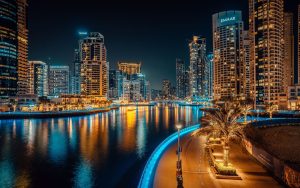المشترون التقليديون ما زالوا في الصدارة
هناك أسواق تاريخيةتظل قوية:
• الهنود: أكبر مجموعة من المستثمرين الأجانب، منرواد الأعمال وحتى العائلات التي تبحث عن منزل ثانٍ.
• البريطانيون: مدفوعون بانخفاض الضرائب وقوة الجنيه مقارنة بالدرهم.
• الروس:ما زالوا يتصدرونصفقات العقارات الفاخرة، خصوصًا في نخلة جميرا والخليج التجاري.
هؤلاء كانوا دائمًاحاضرين، وما زالوا يشكلون أساس الطلب.
القادمون الجدد إلى الساحة
2025 جلب مفاجآت:
• الأمريكيون الشماليون: الارتفاع الضريبي في بعض الولايات، إلىجانب قوة الدولار، جعل دبي أكثر جاذبية لهم.
• الأوروبيون من القارة: الألمان، الفرنسيون، والإيطاليون يتركون وراءهم أسواقًا مشبعة بأسعار مرتفعةويبحثون عن عوائد أقوى.
• الآسيويون: الصينيون والباكستانيون ما زالوا نشطين، مع دخول متزايد من سنغافورة وهونغكونغ.
• الأفارقة: خاصة من نيجيريا وكينيا، حيث يعتبرون دبي مركزًا للأعمال والملاذ الآمنللأصول.
هذا التنوع يخلقسوقًا أكثر استقرارًا، لأنه لا يعتمد على جنسية واحدة.
أنماط المشترين
الأمر لا يتعلقبالجنسيات فقط، بل بأنواع المشترين:
- الأثرياء جدًا (UHNWIs): يشترون فللًا بأكثر من 100 مليون درهم، غالبًا في نخلة جميرا أو جزر جميرا.
- المستثمرون من الطبقة المتوسطة العليا: يشترون شققًا بين 2–5 ملايين درهم، مستهدفين العوائد وتأشيرات الإقامة الذهبية.
- العائلات المقيمة: تتجه نحو مشاريع أكثر عملية مثل مدينة محمد بن راشد وتلال الغاف، حيث المدارس والمساحات الخضراء.
ما الذي يوحدهم؟
رغم اختلاف الجنسياتوالدوافع، هناك عناصر مشتركة:
• التأشيرة الذهبية: عتبة الـ 2 مليون درهم جعلت الاستثمارالعقاري وسيلة للإقامة طويلة الأجل.
• العائد على الاستثمار: العوائد الإيجارية في دبي (6–8٪) لا تزال أعلى من لندن أو نيويورك.
• أسلوب الحياة: الشمس، الأمان، والبنية التحتية العصرية تغري الجميع.
الأصوات من الميدان
• رجل أعمال ألماني:”في برلين، الشقة الصغيرة تكلف أكثر ولا تدر عائدًا. في دبي، أستطيع شراءأكبر وأؤجر بسرعة.”
• عائلة هندية: “اشترينا هنا لنضمن إقامة طويلة الأجل، والأولاد في مدارسجيدة.”
• مستثمر أمريكي: “ضرائب كاليفورنيا دفعتني للنظر شرقًا. دبي منطقية أكثر.”
الخلاصة
“نادي المشترينالعالمي” في 2025 لا يقتصر على الأسماء المعروفة، بل يتوسع كل عام. الروس والهنودوالبريطانيون ما زالوا في الصدارة، لكن الوافدين الجدد من أمريكا الشماليةوأفريقيا يضيفون تنوعًا وقوة. وهذا التنوع هو ما يحمي السوق من التقلبات ويجعل دبيبحق سوقًا عالميًا.
